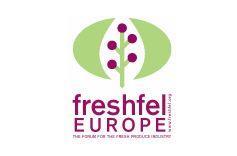
Freshfel Europe has expressed its concerns over the progress of the School Fruit Scheme, highlighting the number of pending duties and the 'considerable uncertainty' surrounding effective and efficient implementation by EU member states.
The European fresh produce association said that it was worried by a number of issues, including an apparent lack of consistency and control that the European Commission was holding over products eligible for the scheme and the weakness in EU communication over the project.
In addition, Freshfel said the EC had thus far failed to launch an ambitious pan-European website, had not conducted an ex-ante impact assessment and had delayed creating an expert advisory committee.
'After the enthusiasm of the launch early this year, too many important elements of the scheme remain unfinished by the Commission,' said Philippe Binard general delegate of Freshfel. 'Freshfel is expecting a greater leadership role from the Commission to secure the good functioning of the programme across Europe and take its responsibility to ensure that the implementation of the programme meets the health objectives of the scheme.'
Freshfel said that there remained 'little visibility' of all planned programme elements being put in place by either member states or the EC, with national strategies in particular remaining vague .
'The council allocated to the Commission an annual budget of €1.3m to perform the tasks of communication and networking, including specifically the development of a dedicated website and the setting up of committee meetings of experts to share best practices,' Mr Binard continued. 'To date, these projects remain pending and the financial resources made available for the fruit and vegetable sector might be lost or used by the commission for other priorities.'
Freshfel said that the creation of the website remained a high priority, with it acting as a facilitator of information, giving an overview of the scheme, contact information, periods of implementation and products included in the programme.
Freshfel described the School Fruit Scheme as a 'unique opportunity' to change the eating habits of children as they head back to school.
'The Commission is responsible for closely monitoring the national programmes and getting advice from nutritionists and health experts to ensure that they meet the objectives of the scheme,' Mr Binard said. 'The Commission is accountable to ensure that public money is used in accordance with the purpose of the scheme.
'After a first analysis of national strategies, Freshfel is worries that the Commission will finance national programmes such as the Greek programme which exclusively provides for the distribution of canned products and juice,' he added. 'Such a plan does not match the integrity of the School Fruit Scheme and should be sanctioned by the Commission by suspending its financing.'



